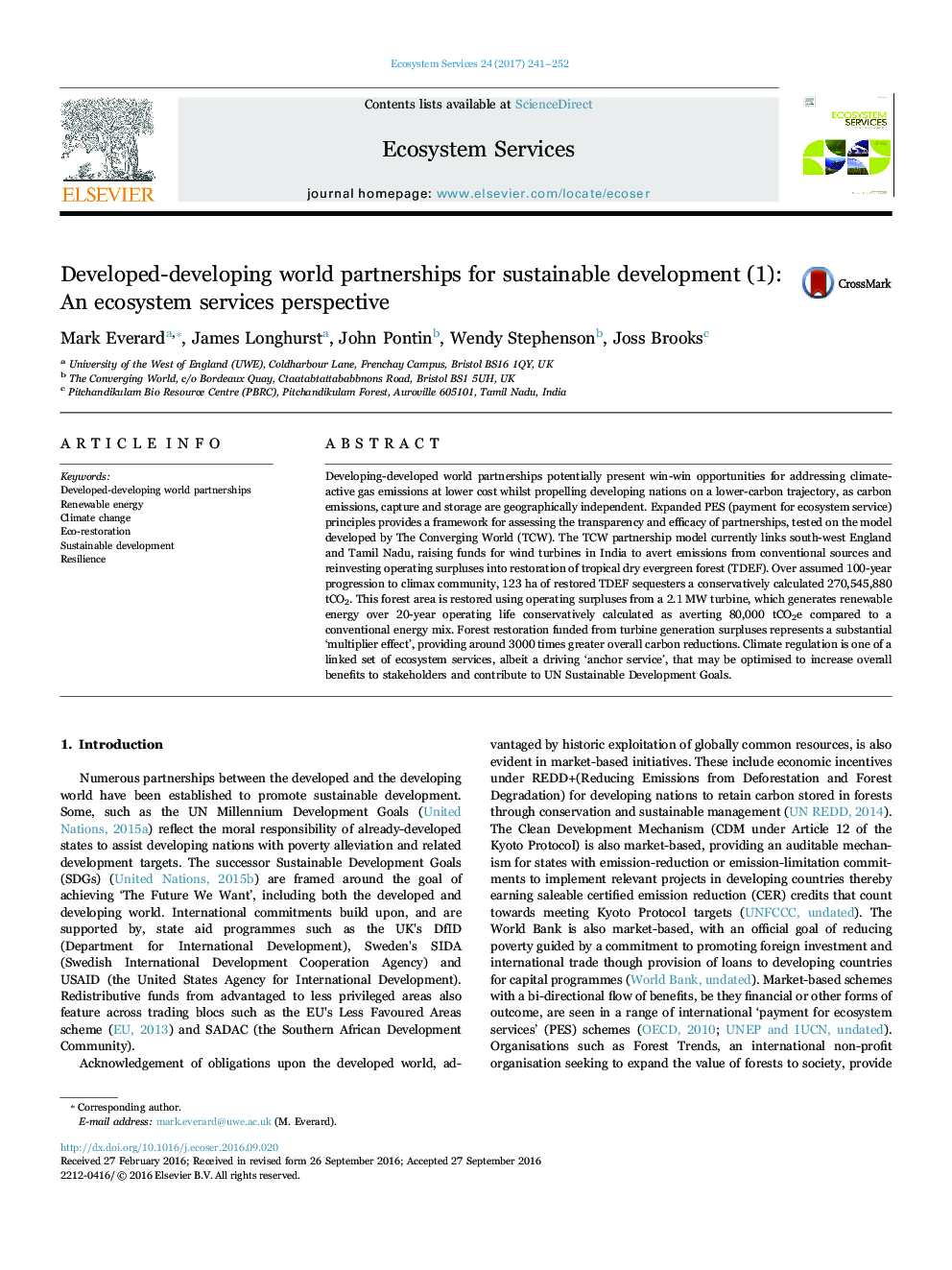| کد مقاله | کد نشریه | سال انتشار | مقاله انگلیسی | نسخه تمام متن |
|---|---|---|---|---|
| 6463641 | 1422536 | 2017 | 12 صفحه PDF | دانلود رایگان |
- Developed-developing world partnerships can address geographically independent services.
- An expanded set of PES-related principles provides a framework for assessing such partnerships.
- The Converging World model provides mutual benefits for addressing climate regulation targets.
- Reinvestment of energy sales into forest restoration acts as a substantial 'multiplier effect'.
- Multiple co-beneficial ecosystem services provided by restored forest benefit local people.
Developing-developed world partnerships potentially present win-win opportunities for addressing climate-active gas emissions at lower cost whilst propelling developing nations on a lower-carbon trajectory, as carbon emissions, capture and storage are geographically independent. Expanded PES (payment for ecosystem service) principles provides a framework for assessing the transparency and efficacy of partnerships, tested on the model developed by The Converging World (TCW). The TCW partnership model currently links south-west England and Tamil Nadu, raising funds for wind turbines in India to avert emissions from conventional sources and reinvesting operating surpluses into restoration of tropical dry evergreen forest (TDEF). Over assumed 100-year progression to climax community, 123Â ha of restored TDEF sequesters a conservatively calculated 270,545,880 tCO2. This forest area is restored using operating surpluses from a 2.1Â MW turbine, which generates renewable energy over 20-year operating life conservatively calculated as averting 80,000 tCO2e compared to a conventional energy mix. Forest restoration funded from turbine generation surpluses represents a substantial 'multiplier effect', providing around 3000 times greater overall carbon reductions. Climate regulation is one of a linked set of ecosystem services, albeit a driving 'anchor service', that may be optimised to increase overall benefits to stakeholders and contribute to UN Sustainable Development Goals.
Journal: Ecosystem Services - Volume 24, April 2017, Pages 241-252
